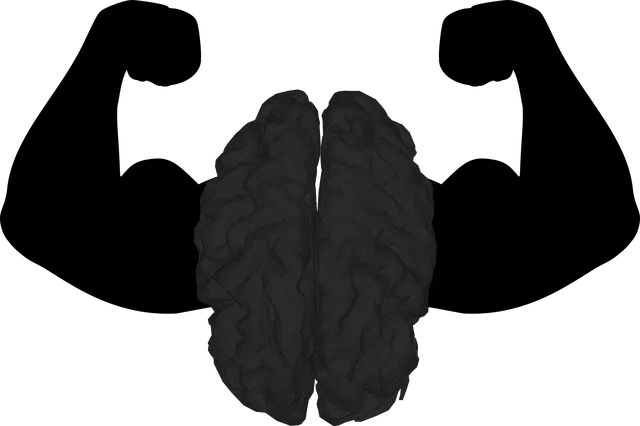The Kaiser Permanente behavioral health center in Lafayette leverages data analysis to enhance mental health care. Through diverse datasets, they identify trends, assess demographic impacts, and evaluate intervention outcomes. Their comprehensive approach includes structured interviews, self-report questionnaires, and innovative platforms like Mental Wellness Podcast Series. Advanced analytics enable tailored service delivery, crisis interventions, risk management planning, and improved self-care routines for healthcare workers. The center's holistic view of mental health fosters a safe, inclusive environment and equitable access to resources for the community.
Mental health data analysis is a powerful tool in understanding and improving individual well-being. This comprehensive guide explores the intricate process of analyzing mental health trends, focusing on real-world applications at the Kaiser Permanente Behavioral Health Center Lafayette. From data collection methods to practical insights, we delve into techniques that enhance care and support mental health professionals. Discover how data-driven strategies can revolutionize patient outcomes and contribute to a healthier society, with a special emphasis on the unique resources offered by Kaiser Permanente.
- Understanding Mental Health Data: A Comprehensive Overview
- Kaiser Permanente Behavioral Health Center Lafayette: An Introduction
- Data Collection Methods and Tools for Mental Health Assessment
- Analyzing and Interpreting Mental Health Trends: Techniques and Strategies
- Practical Applications: Enhancing Care with Data-Driven Insights
Understanding Mental Health Data: A Comprehensive Overview

Understanding Mental Health Data is a complex yet vital process, especially within renowned healthcare organizations like the Kaiser Permanente behavioral health center in Lafayette. This data encompasses a wide range of information, from patient demographics and diagnostic codes to treatment outcomes and satisfaction ratings. By thoroughly analyzing these datasets, mental health professionals can uncover valuable insights that drive evidence-based practices and improve patient care.
The comprehensive overview involves meticulous examination of records, identifying trends and patterns related to various mental health conditions. This includes the impact of demographic factors on treatment effectiveness, as well as the long-term outcomes associated with different interventions. Additionally, centers like Kaiser Permanente Lafayette may utilize data to guide Crisis Intervention Guidance and Risk Management Planning for Mental Health Professionals, ensuring a safe and supportive environment for both patients and practitioners. Moreover, self-care routine development is enhanced by data analysis, promoting better mental health among healthcare workers.
Kaiser Permanente Behavioral Health Center Lafayette: An Introduction

Kaiser Permanente Behavioral Health Center Lafayette is a renowned facility dedicated to mental well-being and psychological support. This center plays a pivotal role in the community, offering comprehensive services tailored to diverse individual needs. With a team of experienced professionals, it provides a safe space for individuals seeking help with various mental health concerns.
The center’s approach emphasizes evidence-based practices, including Stress Management Workshops Organization sessions, Conflict Resolution Techniques training, and Cultural Sensitivity in Mental Healthcare Practice initiatives. By incorporating these strategies, the Lafayette location aims to enhance patient outcomes and create an inclusive environment that respects and values every individual’s unique cultural background.
Data Collection Methods and Tools for Mental Health Assessment

At the Kaiser Permanente behavioral health center Lafayette, various data collection methods and tools are employed to comprehensively assess mental health. These include structured clinical interviews, such as the Structured Clinical Interview for Diagnostic and Statistical Manual (SCID) disorders, which help diagnose specific mental health conditions. Additionally, self-report questionnaires like the Patient Health Questionnaire (PHQ-9) and Generalized Anxiety Disorder 7-Item Scale (GAD-7) are used to gauge symptoms and severity of common mental health issues. These methods provide a robust foundation for understanding individual and population-level mental wellness trends.
Complementing these traditional tools, the Mental Wellness Podcast Series Production offers innovative avenues for data collection. By engaging in open discussions and sharing experiences through podcasts, individuals contribute valuable insights into their mental health journeys, highlighting specific challenges and coping strategies. Furthermore, Mind Over Matter Principles and Social Skills Training programs facilitate interactive learning environments that collect qualitative data on participants’ progress, preferences, and areas of improvement. Integrating these diverse data sources enables a holistic understanding of mental health within the community.
Analyzing and Interpreting Mental Health Trends: Techniques and Strategies

Analyzing mental health trends is a complex yet essential task for organizations like the Kaiser Permanente behavioral health center in Lafayette. Advanced data analysis techniques play a pivotal role in understanding and addressing the evolving landscape of mental well-being. By employing robust statistical methods, researchers can identify patterns within vast datasets, shedding light on emerging issues and successful interventions. For instance, analyzing demographics and geographic distributions of mental health disorders helps tailor services effectively.
The process involves meticulous data cleaning, integration from diverse sources, and application of machine learning algorithms to predict trends and risks. This strategic approach enables healthcare providers, including those in culturally competent training programs, to offer tailored support. Moreover, by integrating insights from Mental Health Policy Analysis and Advocacy, Trauma Support Services, and community engagement, the center can design comprehensive care models that address systemic barriers and promote equitable access to mental health resources.
Practical Applications: Enhancing Care with Data-Driven Insights

At the Kaiser Permanente behavioral health center Lafayette, data analysis plays a pivotal role in enhancing care and improving patient outcomes. By leveraging advanced analytics, healthcare professionals gain valuable insights into trends and patterns within their patient population. This enables them to tailor interventions and treatments more effectively, focusing on areas such as Self-Care Practices and Mind Over Matter Principles. For instance, analyzing mental health data can reveal peak stress periods or specific triggers that contribute to increased anxiety or depression, allowing for the development of targeted programs and resources.
The integration of data-driven insights has significantly impacted Mental Health Awareness, empowering both patients and healthcare providers. Through this approach, care becomes more proactive rather than reactive, fostering a holistic understanding of mental health. By identifying at-risk individuals early on and providing them with appropriate support, the center contributes to creating a healthier, more resilient community.
Mental health data analysis is a powerful tool for improving patient care, as demonstrated by the innovative practices at the Kaiser Permanente Behavioral Health Center Lafayette. By employing robust data collection methods and advanced analytical techniques, healthcare professionals can uncover valuable insights from mental health trends. This enables more precise diagnoses, personalized treatment plans, and ultimately, better outcomes for individuals seeking support. Through continuous analysis and interpretation, centers like Kaiser Permanente can stay at the forefront of mental healthcare, ensuring that evidence-based practices guide every decision.






